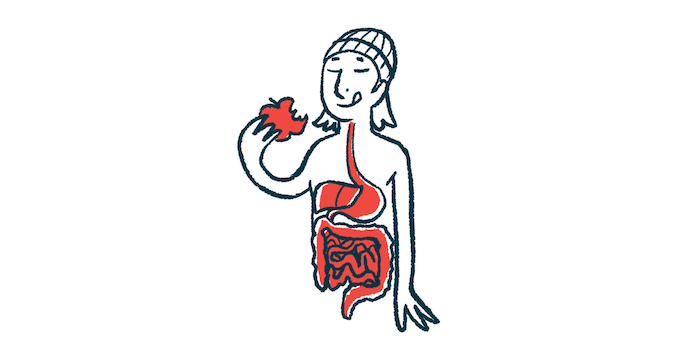GLP-1 Hormone Infusions May Boost Insulin Production in CF Patients
Written by |

Infusions with a hormone called GLP-1 boosted insulin production in cystic fibrosis (CF) patients with impaired glucose tolerance, according to data from a small study.
The results suggest that GLP-1 agonists — medications that mimic the hormone’s activity, but last longer in the body — may be useful as an alternative to glucose injections for patients with CF-related diabetes.
That’s important because nearly half of adults with CF develop diabetes as a result of the genetic disease, studies have shown.
“Our hope is to delay or significantly reduce the need for complex insulin management through preserving [pancreas] function and insulin secretion in individuals with cystic fibrosis, potentially via a once-weekly GLP-1 agonist injection therapy,” Michael Rickels, MD, the study’s co-senior author and a professor at the Perelman School of Medicine at University of Pennsylvania, said in a university press release.
The study, “Effects of GLP-1 and GIP on Islet Function in Glucose Intolerant, Pancreatic Insufficient Cystic Fibrosis,” was published in the journal Diabetes.
Cystic fibrosis is characterized by the buildup of abnormally sticky and thick mucus in various organs, notably the lungs and pancreas. The pancreas, which sits behind the stomach, produces insulin, a hormone that helps the body’s cells take up glucose (sugar) in the blood.
The hallmark of CF-related diabetes, meanwhile, is the reduced production of insulin in the body; a possible abnormal response to insulin also may occur.
“[Because] diabetes has been linked to worse lung function, this creates a vicious cycle, with diabetes acting as a multiplier on the patient’s already damaged lungs,” the release stated.
Normally after a meal, the gut releases hormones called incretins, which signal the pancreas to produce insulin. There are two main incretins: GLP-1 (glucagon-like peptide-1) and GIP (glucose-dependent insulinotropic polypeptide).
This study enrolled 32 CF patients with abnormal glucose tolerance and pancreatic insufficiency, a key digestive symptom of CF. Four CF patients with normal glucose tolerance and four people without CF also were included as controls.
The study participants were given 90-minute infusions with incretins — half with GLP-1, and half with GIP. The patients each received two infusions, one with the active hormone, and another with a placebo to serve as a comparator.
Results showed that, among the CF patients, natural insulin production was increased when given infusions of the GLP-1 hormone, compared with placebo infusions. However, infusions of GIP did not boost insulin production.
“These data indicate that GLP-1, but not GIP, augments glucose-dependent insulin secretion in [CF patients with pancreatic insufficiency], supporting the likelihood that GLP-1 agonists could have therapeutic benefit in this population,” the researchers concluded.
“This finding supports the likelihood that GLP-1 agonist medications could have therapeutic benefit in the treatment and possible prevention of cystic fibrosis-related diabetes,” Rickels said, adding that a proof-of-concept clinical trial testing once-weekly treatment with an available GLP-1 agonist is ongoing.
Further study to understand why GIP does not have insulin-boosting effects in people with CF could help to shed light on the biological underpinnings of how CF-related diabetes develops, the researchers also noted.







